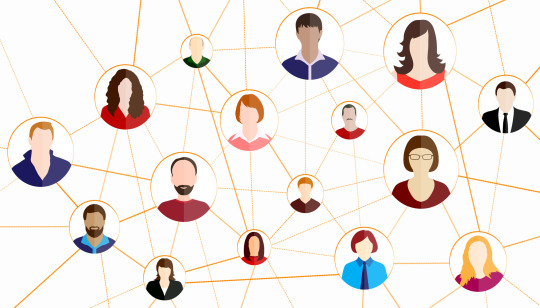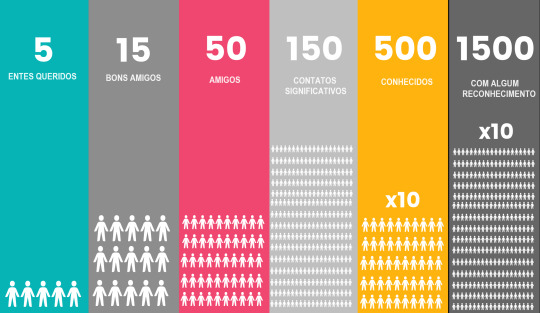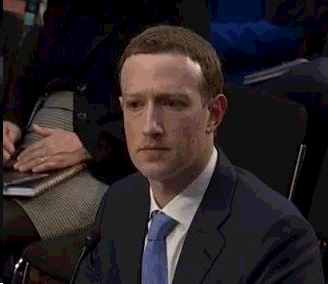#dunbar's number
Explore tagged Tumblr posts
Text
If you are considering leaving the social media of the Meta company, here are some tips.
January 19, 2025 Before you leave ... Make a list of the mutuals whom you'd like to stay in contact with. This can be challenging if you have a lot of mutuals. Try to select no more than 150. Why 150? Read the text in the footnote, about Dunbar's number.
Now write on your list where you can contact these mutuals. Maybe they have a blog and a public e-mail adress. Maybe they use messenger services outside of the Meta company, like Signal, Threema, Skype or the messenger here on Tumblr, or others. Maybe they offer a newsletter to which you can subscribe. Ask them if you don't know. Yes, this is tedious work, but it may be worth while.
Or: Write a post in your Meta social media, explaining where you can be contacted in the future. Ask in your post where you can contact your mutuals, if they want to stay in touch with you. Give them the option to write you a private message about this, instead of a comment which can be read by others. Another idea: If you want to, write a post about Tumblr (or the Fediverse, or Pixelfed or other social media that you can recommend). Explain the advantages of these social media. Maybe link to a guide to them, like this one for the Fediverse: https://fedi.tips/ Maybe some of your mutuals will follow you there.
Footnote Dunbar's number is a suggested cognitive limit to the number of people with whom one can maintain stable social relationships—relationships in which an individual knows who each person is and how each person relates to every other person. You can read more it here.
#quit meta#leaving facebook#leaving instagram#Fediverse#Tumblr#Mastodon#Pixelfed#social media tips#social media#staying in contact#dunbar's number
13 notes
·
View notes
Text
"I can understand why they wouldn’t know their enemy, because to “know” their enemy would require exposure to thoughtcrime, which is a thoughtcrime itself. It is forbidden to ask what is forbidden. To even approach understanding why the Russians are fighting back so hard would require comprehending their own side’s insanity and evil towards them. But why not know each other? What are the limits or restrictions to that? Isn’t this what Davos and WEF and all that are for? Did offing Epstein burn down one of their speakeasy networking safe houses? Was Epstein’s Epsteining in that jail cell a microcosm of a greater pattern going on out here, where the effort and risk required to keep the band together is just too much to expect? Like if all I had to do was serve as the secretary of my fraternity reunion committee or something, that’s one thing, but if today I have to really stick my neck out and arrange blatantly illegal jailbait parties like Epstein and Puffy did, and some of my guests can’t keep a damn secret anymore, then maybe the glue logic just isn’t holding? Maybe being a “connector” person at that level today requires “knowing too much”? If that’s so, then why wasn’t it that way in 1970? Because back then, maybe there was a “WASP Center” at the top who had all gone to Yale and understood and trusted each other in a way that’s just no longer possible in a cacophonous and factionalized Jewish/Indian/Chinese/Karen/Negro/Homo Rainbow Dystopia? Or maybe I’m bloviating again, and it’s just that once you’re too far past Dunbar’s number, that’s it, there just isn’t one “us” anymore."
—Mister Grumpus
2 notes
·
View notes
Text
One of my fanart sketchbooks♥️
Im so so grateful to this fandom for making me obsessed with this style of art, i always have so much fun exploring it and improving🥹🫶
A LOT of MCs are featured in here, let’s see if I remember all of them🤭
Lorra @heylorrain
Damien @theladyofshalott1989
@newbienewness
Versailles @versailles-black
Tin Hui @lamieboo
@crushribbons birdie💘
Theo @writing-intheundercroft
Maeve @sage-pages
Ellie @accio-bagel
Violette @syaolaurant
Elsie @anomalyaly
Clara @kaidynsarell
Seolhee @ccelicaa
Aurélie @morelikeravenbore (this is one of my favorites🤭)
Tori @espressoristretto-patronum
Eleanor @endless-starlight-legacy
Millie & Bea @the-ozzie
Auri @rypnami
Ida @limonnitsa
Julia @superconductivebean
And LOTS AND LOTS OF MY ANGEL ELOISE♥️♥️♥️
#Ive been busy this year BUT I LOVE ALL OF YOU AND ALL OF THE MCS IN THIS FANDOM SO MUCH♥️♥️♥️♥️#I swear my Dunbar number is filled up by this fandom though bahahahahahahahaahhha like I have a lot of your little guys living in my brain🫶#anyways I thought this was fun to flip through so i recorded it to share♥️#working on these commissions reminded me how much I love painting♥️ and I love my illustration style a lot#even if sometimes I feel a bit insecure about it#hogwarts legacy#hphl#hogwarts legacy fanart#hogwarts legacy mc#hogwarts legacy oc#eloise babbit#sebastian sallow#sebastian sallow x mc#sebastian sallow fanart
181 notes
·
View notes
Text

#OH HELL YEAH GANG WE MADE IT#we got the devil's number and the sex number ahahahaha#😎😎😎😎😎😎😎😎😎#teen wolf#thiam#theo raeken#liam dunbar#thiam fanfic
101 notes
·
View notes
Text
memes i made a few days ago:










#teen wolf#teen wolf memes#lydia martin#the it girl#brett talbot#him being canon bi is important to me#liam dunbar#little shit actually#brett and liam cause they’re my favorite#kate argent#my number one opp#just kidding gerard first#cora hale#deserved more screen time tbh#malia tate#my spirit animal#corey bryant#corey is me#theo raeken#thiam had collectively like 2 brain cells#text post meme
79 notes
·
View notes
Text
And once again, conservatives telling on themselves when they reveal that without external imperatives to be good to the people around them, they would “act like a psychopath towards your neighbors.”
As Sir Terry Pratchett said (in the text it was the cause of his knighting), put into the mouth of a character who is explicitly supposed to be morally correct on as close to an objective level as possible, “personal isn’t the same as important.”
Of course, we are responsible to be decent to the people around us, but not acting decently or morally to those outside your daily interactions is a childlike sense of object impermanence. It is much easier to be reasonable and decent to those around you, because you only have to regulate your direct actions, while it takes more care to realize that you were affecting people who you don’t necessarily see or talk to, and should also be aware of how your life will affect theirs and act morally accordingly.
I would very directly say that assigning weight merely on proximity is in fact antithetical to the general concept of modern civilization, and indeed the organizing of large-scale human civilizations in general. It is only by using social technologies to advance beyond tribalism and surpass the limits of Dunbar's number that we manage to create the modern interconnected world that we live in.
And lest conservatives take issue with the very concept of bypassing Dunbar's number to care about people beyond your metaphorical line of sight, I would say that monarchy and Christianity are in fact an excellent examples of this social technology, using a single individual as an object of metonomy take care about all followers of a religion, or all members of estate by caring about the individual dictating its rules.
The reason I can tell that on some bone-deep and fundamental level I am temperamentally a liberal is that, like -
Even if all the wonky neo-trad arguments about the declining marriage rate and the collapse in church attendance/thick inherited community obligations and etc etc were entirely correct on the object level and (to the first approximation) everyone really would be happier and more fulfilled if we ended no-fault divorce and brought back shotgun weddings and arranged marriages -
My incredibly powerful visceral reaction is no, not worth it. The dissolution of all unchosen bonds is a terminal value to be pursued for its own sake. You are a citizen of a the world and a cousin to every living soul, all else is (should be) as fleeting and contingent as your passions and whims. Concessions to reality on this are purely temporary and pragmatic.
#social science#social technologies#social technology#Dunbar's number#moral weight#personal isn’t the same as important#captain carrot#discworld#gnu sir terry pratchett#terry pratchett
438 notes
·
View notes
Text
Okay so something I think about a lot but never talk about is Yossarian as an anti-Achilles figure. Either I read somewhere that this allusion was intentional (or I've just been obsessing over it in my own head throughout the last 4 years), but one of the main themes in the Iliad was the dichotomy between kleos and nostos. For context:
Kleos - the glory of a death in battle; fame and glory; maintaining immortality through the vestiges of success
Nostos - homecoming, the return home from a journey/event. Specifically: an epic return home, usually by sea, usually with lots of trials and tribulations.
With this established, I'd also like to note that in the Iliad (sorry, spoilers), Achilles has the choice between nostos or kleos. He's already swaying towards nostos, until Patroclus, his lover, is killed in battle. After this, Achilles gives up nostos completely and leads his men into battle, knowing he'll die.
In Yossarian's case, he's constantly forced towards kleos, and he's trying to get the hell away from it (thematically opposing Achilles, who is offered nostos and gives it up willingly). If you compare the chaplain to Patroclus, you see a similar anti-Patroclus perspective. The chaplain is never brave enough to go against his and Yossarian's superiors, never able to get Yossarian away from death in battle. This, of course, juxtaposes Patroclus' decision to lead men into battle, causing his death. Additionally, if you view Yossarian through the 'beloved' lens (this was a whole thing in Ancient Greek perspectives; I can elaborate on how the beloved/lover is discussed in Plato's Symposium in the comments if anyone's interested), he would be doing the least honorable imaginable thing (as contrasted to Achilles, also a 'beloved', who goes into battle for the sake of Patroclus). Whether intentional or not, Heller's subversion of both modern day and ancient war narratives does put Yossarian into an anti-Achilles position. In fact, part of it likely was conscious, especially given this particular line--although it's a baffling comparison, because it's completely inaccurate. Yossarian's behavior is the polar opposite to Achilles. Korn's reference is wrong.

In this way, where Achilles and Patroclus both received kleos, Yossarian and the chaplain are some of the only people in Catch-22 capable of nostos, although there would be no glory in their homecoming.
And!!!! To make another such comparison (actually this one I only thought of this week; kleos/nostos Yossarian has been on my mind for four years), Clevinger as an anti-Odysseus. Odysseus has the same cleverness as Clevinger, but Odysseus is significantly more adept at situational relations and understanding his place amongst others. They both have overconfidence; Clevinger's is misplaced and Odysseus's is not. But this is not about that. Thematically, Odysseus is the one who is capable of returning home, although it of course takes him copious amounts of time. He survives the Trojan War by his wits. Clevinger, meanwhile, lacks the wits and common sense to escape the war. While he doesn't dream for kleos, he's also not focused on his own survival in the way Odysseus is (comically, he's the complete opposite). His disappearance/death ensures that not only is he not capable of homecoming, but he also won't be lauded for success in battle.
Yossarian isn't particularly helped by him when he's alive, but the concept of Clevinger is omnipresent in Yossarian's life after his death. Where in the Trojan War, Odysseus would have advised Achilles, it's the lack of Clevinger which influences Yossarian (during Clevinger's life, he didn't particularly galvanize Yossarian into doing anything; he was unwise).
In conclusion, they all serve as anti-Homeric heroes, in what may have been intentional or unintentional parallels by Heller. I also do know that Heller was incredibly well-read (obviously, given the number of literary references), and I wouldn't be surprised if he did this on purpose. Yossarian as an anti-Achilles, the chaplain as an anti-Patroclus, and Clevinger as a would-be anti-Odysseus (this one is more debatable than the other two tbh). This of course means that the obvious Catch-22 sequel would be about nost--[gets nerfed by a sniper]
#catch 22#actually the kleos/nostos thing has bothered me for a long time; i'm never not thinking about it#in fact a good number of my fics are directly about nostos (that's my favorite one of the two)#and what the characters would have to do to actually achieve their homecoming. since home is more than a physical place it's emotional also#i could go into the dunbar/anti-diomedes parallel too but this is getting long and that one is definitely more of a conjecture than these
26 notes
·
View notes
Text
I loveeee LOVE loveeee how I got back into Teen Wolf for the sole purpose of being able to write Thiam fanfiction, because I was obsessively reading it.
Like it was Thiam for me. It was always Thiam. It was Thiam Thiam THIAM THIAM THIAM.
I ALSO love how Jeff Davis essentially crackshipped Malia and Scott into existence. I hate to admit I love him for it because I love Scalia, but I also hate him for it because Scalia... SCALIA was the crackship he made canon.
SCALIA.
Ohhhhh, but, ohhhhh, noooooo, THIAM was the line he SHAN'T cross. 💀
That man is not going up to the good place.

LOOK

AT THIS CHEMISTRY.
They weren't even a crackship, it's where the characters WANTED to go.
#teen wolf#theo raeken#thiam#liam dunbar#theo x liam#scalia#scott mccall#malia tate#that man is my number one enemy
160 notes
·
View notes
Text
liam in his little voice saying, "what the hell are you doing?" is something i quote at least thirty times a day
16 notes
·
View notes
Text
im always literally so shocked when people are like "yeah i follow 200 people" "i follow 90...." i follow 2,433 accounts bc i will just slam the button over nothing. one piece of art i like? follow. good username? follow. nice icon + header + pinned post layout? follow. posted about zero escape once in the past 10 years? it could happen again. follow.
#like yknow i give everyone a cursory sniff. a little vibecheck. but besides that#my bar is sooooo low. my philosophy is “well i can always unfollow later”#this is why i have nooooooo social tolerance irl btw. my dunbar number is entirely fulfilled by tumblr mutuals#no way to live if we're gonna be honest#ztxt
11 notes
·
View notes
Text
Até 150 relações significativas!
Você já ouviu falar no "número de Dunbar"? Bem, nem todos conhecem! Mas provavelmente muitos conhecem a anedota "quantidade é inversamente proporcional à qualidade", não é?
O número de Dunbar é a hipótese proposta pelo antropólogo e psicólogo evolutivo britânico Robin Dunbar, que defende que o cérebro humano, selecionado ao longo da evolução, consegue estabelecer um número limite de relacionamentos significativos com outras pessoas. Esse número gira em torno de 150.
Até 150 relações significativas! Até 150 pessoas realmente importantes!

Passou desse número, nosso cérebro tem dificuldade de "processar" respostas emocionais e vínculos afetivos realmente significativos. Será?

De onde Dunbar tirou o número "150"?
Bem, da ciência!
A hipótese formulada por Dunbar sobre o tal "número de Dunbar" baseou-se em uma possível relação entre o tamanho do neocórtex humano e dos primatas em geral (região cerebral ligada à cognição e linguagem) com o tamanho médio dos grupos sociais em que vivem os primatas. O cerne central dessa relação parece ser bem lógica e direta: "primatas com neocórtex maior tendem a viver em grupos sociais maiores".
Ao extrapolar essas observações para os seres humanos, Dunbar sugeriu que, com base no tamanho médio do neocórtex humano, o número máximo de relacionamentos sociais estáveis que uma pessoa pode manter é de cerca de 150.
Dunbar também levou em consideração vários outros fatores, entre eles o comportamento social de 38 gêneros diferentes de primatas e as organizações sociais humanas desde de o período Neolítico. Considerou evidências antropológicas e históricas sobre as diversas estruturas de grupos sociais em comunidades humanas e observou padrões em relação ao tamanho médio desses grupos.

Robin Dunbar é Atualmente é chefe do Grupo de Pesquisa em Neurociência Social e Evolutiva do Departamento de Psicologia Experimental da Universidade de Oxford.
Segundo o cientista britânico, em muitas sociedades humanas, as comunidades costumavam se organizar em grupos de até aproximadamente 150 pessoas para realizar trabalhos importantes. Ele encontrou evidências históricas de tais estruturas sociais em tribos, clãs, comunidades religiosas e outros grupos humanos. Essas observações históricas e antropológicas forneceram suporte adicional a sua hipótese de que há um limite cognitivo para o número de relacionamentos sociais significativos que um indivíduo pode manter.
Bem, mas talvez você esteja se perguntando: "e se uma pessoa vive em comunidades constituídas por mais de 150 pessoas"?
Então! Segundo Dunbar, há implicações significativas para as pessoas que convivem em grupos maiores que 150 pessoas. Ele sugeriu que, à medida que os grupos sociais crescem além desse limite, poderão surgir desafios no gerenciamento de relacionamentos significativos, entre eles:
1-Dificuldade de Manter Relacionamentos Próximos: à medida que os grupos sociais se tornam muito grandes, as interações e relações pessoais tendem a se tornar mais superficiais. Manter relacionamentos profundos e significativos com um grande número de pessoas torna-se cada vez mais desafiador.
2-Complexidade na Comunicação e Coordenação: grupos muito grandes podem enfrentar dificuldades na comunicação eficaz e na coordenação de atividades. Dunbar sugere que a capacidade de manter um consenso e uma coesão eficientes torna-se mais difícil à medida que o grupo cresce.
3-Dificuldade em Manter a Cooperação Social: a cooperação social eficaz pode ser mais difícil em grupos muito grandes. Dunbar aponta que a confiança e a cooperação são fundamentais para o funcionamento harmonioso de grupos sociais, e esses aspectos podem ser comprometidos em comunidades muito extensas.
4-Desafios na Manutenção de uma Identidade de Grupo Forte: grupos sociais menores podem ser mais eficientes na promoção de uma identidade coletiva e de um sentido de pertencimento. Em grupos muito grandes, a coesão e a identidade compartilhada podem ser mais difíceis de manter.
Dunbar idealizou "círculos hierárquicos" para as relações humanas. O círculo mais restrito tem apenas 5 pessoas, geralmente entes queridos. Depois, seguem as outras camadas circulares sucessivas de relacionamento na seguinte ordem hierárquica de significância: "15 bons amigos", "50 amigos", "150 contatos significativos", "500 conhecidos" e "1.500 pessoas com algum reconhecimento". As pessoas podem migrar para dentro e para fora destas camadas, mas a ideia é que seja necessário criar espaço para quaisquer novos participantes.

Mas muita calma nessa hora!
Embora a hipótese de Dunbar forneça uma perspectiva interessante sobre a dinâmica dos grupos sociais e de suas limitações cognitivas baseadas em evidências científicas, a maioria dos especialistas diz que o número "150" é uma generalização, pois a capacidade de gerenciar grupos sociais varia de pessoa para pessoa e de cultura para cultura.
As Redes Sociais
Dunbar, assim como outros cientistas, chamaram a atenção para as implicações da hipótese de Dumbar não só para as relações humanas do mundo físico, mas também no "universo virtual", aquele das redes sociais.

Em plataformas de redes sociais online, tais como Facebook, Twitter e outras, as pessoas muitas vezes têm uma quantidade muito maior de "amigos" ou "seguidores" do que seria possível manter como relacionamentos significativos na vida offline, na vida real. Muitas dessas conexões online tendem a ser mais superficiais.
Ora, claro que as redes socias fizeram uma verdadeira revolução nas comunicação, mas não necessariamente na "qualidade" dos relacionamentos humanos. Na verdade, segundo muitos especialistas em comportamento humano, na prática as redes sociais transformaram a comunicação e a interações humanas mais superficiais.
Embora a hipótese de Dunbar não tenha sido desenvolvida especificamente para explicar as dinâmicas das redes sociais online, muitos pesquisadores e observadores exploraram sua aplicação a esses contextos, fornecendo insights sobre como as pessoas interagem e mantêm relacionamentos em ambientes digitais.
Segundo Dunbar, as redes sociais trazem novos seguidores localizados em novos círculos hierárquicos de relacionamento mais distantes daquelas primeiras camadas mais essenciais que contemplam os 150 relacionamentos. Maior parte dos seguidores não representa um relacionamento próximo e significativo.
No universo online, as "relações cara a cara", as informações sensoriais não verbais, tais como o olhar, o cheiro, o calor, a expressão facial e a linguagem corporal inexistem. O cérebro primata foi concebido evolutivamente para estabelecer algum vínculo afetivo significativamente importante por meio dessa aparelhagem sensorial. " Quando precisamos de um amigo, é extremamente difícil chorar em um ombro virtual", disse Dunbar.
A Superpopulação Mundial e a Hipótese de Dunbar
Vivemos um "boom" populacional humano; 8 bilhões de pessoas vivendo na Terra. Estima-se que cerca de 5 bilhões têm acesso à internet. Falar sobre como toda essa gente impacta os recursos naturais do planeta geraria uma outra longa postagem aqui no tumblr, mas vamos focar apenas nas relações humanas desse "mundaréu de gente". Afinal, existem muitos estudos científicos que relacionam diversos distúrbios de saúde física e mental com a elevada densidade populacional, dependendo do contexto cultural e das condições socioeconômicas.
Alguns estudos sugerem que a superpopulação em áreas urbanas densamente povoadas pode estar associada aos níveis elevados de estresse, ansiedade e transtornos do humor. A falta de espaço, privacidade e uma maior exposição a estímulos urbanos podem contribuir para esses efeitos. Vale ressaltar que em ambientes densamente povoados, a disseminação de doenças infecciosas é muito maior também
Quando aplicamos a hipótese de Dunbar a ambientes altamente povoados, como grandes cidades ou áreas urbanas densamente habitadas, surgem reflexões importantes sobre como as pessoas gerenciam seus relacionamentos em meio a uma grande variedade de rostos e interações diárias.

Em São Paulo, em Nova York, na Cidade do México, em Tóquio, assim como outros grande centros urbanos, temos milhões de pessoas compartilhando os mesmos espaços , e as interações diárias podem envolver uma diversidade de faces desconhecidas. Nesse contexto, a hipótese de Dunbar nos leva a refletir sobre as possíveis consequências desse excesso de estímulos sociais.
Ora, sejamos honestos! Em ambientes altamente povoados, maior parte dos relacionamentos tende a se tornar superficial. À medida que o número de interações aumenta, a profundidade emocional de cada conexão pode diminuir, tornando desafiador cultivar relações verdadeiramente íntimas. A abundância de rostos e interações em ambientes urbanos pode levar à fadiga social. O cérebro humano pode enfrentar dificuldades em processar e assimilar um grande volume de informações sociais, levando a uma sensação de sobrecarga e exaustão social.
A coesão social em ambientes altamente povoados é muito mais difícil. Manter um senso de comunidade e identidade coletiva nesse contexto pode ser prejudicado quando o número de interações ultrapassa a capacidade do cérebro humano em gerenciar relações profundas e significativas. Isso ai é "dois palitos" para que as cidades densamente povoadas se tornem uma "bomba relógio" de cidadãos que sofrem de depressão, ansiedade ou outros transtornos.
Talvez um dos grande desafios dos novos tempos, principalmente nas comunidades densamente povoadas, seja construir tanto no mundo offline como no mundo online relações humanas realmente significativas, para que nós não percamos a essência que nos torna realmente felizes e dotados de saúde física e mental.
Leia também:
1-https://www.bbc.com/future/article/20191001-dunbars-number-why-we-can-only-maintain-150-relationships#:~:text=The%20theory%20of%20Dunbar's%20number,today's%20world%20of%20social%20media%3F (acesso em 20 de janeiro de 2024).
2-https://g1.globo.com/ciencia-e-saude/noticia/2020/11/25/teoria-de-dunbar-somos-mesmo-incapazes-de-ter-mais-de-150-amigos.ghtml (acesso em 21 de janeiro)
3 notes
·
View notes
Note
just billions things, taylor & sacker's similarities being clear all along, all the more when finally there were teamups that were brief but powerful, now we have their juxtaposition with sacker going "i'd like things to be ethical but i'll throw it away for my personal goals" and taylor going "i'd like to pursue personal goals but i'll throw it all away for the ethical thing." going yeah we can have it all re someone whose morality is at odds w their ambition
*always sunny theme* Sacker Throws Away Personal Goals For Ethics… love the dramatic irony created by this ask being sent shortly after 7x10 and me waiting to answer it until now. though in looking at their respective endings it is interesting that once the Big Scheme was complete, taylor was able to walk directly into a building that contained the fulfillment of their personal goals, whereas sacker is going back to where she started and putting her own goal (that she was chasing on and off for three full seasons) on hold yet again to get back to a place where she could reasonably achieve it. the factor of depending on public approval to get what you want, i guess. and to bring in a third comparison, scooter comes to terms with the fact that he put not his own personal goals, but prince’s, over his ethics, despite them being intended as one and the same long ago. and yet his ending is that he gets to follow his dream in a way he never could have as prince’s second-in-command, specifically because 1) other people put the ethical thing ahead of personal gain and, more specifically 2) philip went out of his way to keep scooter from going broke out of love and loyalty to him.
#inbox#unproduciblesmackdown#billions#taylor mason#kate sacker#scooter dunbar#philip charyn#aka the four series regulars i'd most want to see in a spinoff. dave at number five
3 notes
·
View notes
Text
You are absolutely correct.
this might be a hot take but i actually don’t think humans were meant to know what is going on in everyone’s lives all over the world every second of the day and constantly be available for conversations or collaborations or call-ins for work and texts and phone calls and social media posts without end. i think we were supposed to just help the people around us and spend time with our family and friends and eat yummy bread and berries and relax
78K notes
·
View notes
Text
I am reading "this book is full of spiders" Right now and this part of the book has really made me THINK.
Dunbar's number theory.
based on the size of a humans neo-cortex that number is about 150. thats how many other humans we can recognize before we max out our connections with some variability between individuals of course. That is our maximum capacity for sympathy.
everything we do requires cooperation in groups larger than 150. Governments, corporations, society as a whole, and we are physically incapable of handling it. So every moment of the day we urgently try to separate everyone on earth into two groups. Those inside the sphere of sympathy, and those outside.
black vs white. Liberal vs Conservative. Muslim vs Christian, lakers fan vs celtics fan. With us, or against us. Infected vs clean. we simplify tens of millions of individuals down into simplistic stereotypes so that they hold the space of only one individual in our limited available memory slots and here is the key. Those who lie outside the circle are not human. We lack the capacity to recognize them as such.
This is why you feel worse about your girlfriend cutting her finger than you do about an earthquake in Afghanistan that kills 100,000 people. This, is what makes genocide possible. This is what makes it possible for a CEO to sign off on a policy that will poison a river in Malaysia and create 10,000 deformed infants.
because of this limitation in the mental hardware those Malaysians may as well be ants.
1 note
·
View note
Text

Humans have a hard cap on the number of relationships they can maintain in their lives.
0 notes
Text
Soul Friends
There are friends and then there are soul friends.
You have friends, and then you have Friends. The former might include acquaintances, people you have “met” online, some people you see at work but never see outside of work settings, and friends that you rarely see or hear from but who you still consider to be your friends. The latter group of capital F friends is your small circle of people. The number of true friends people have varies, but…

View On WordPress
0 notes